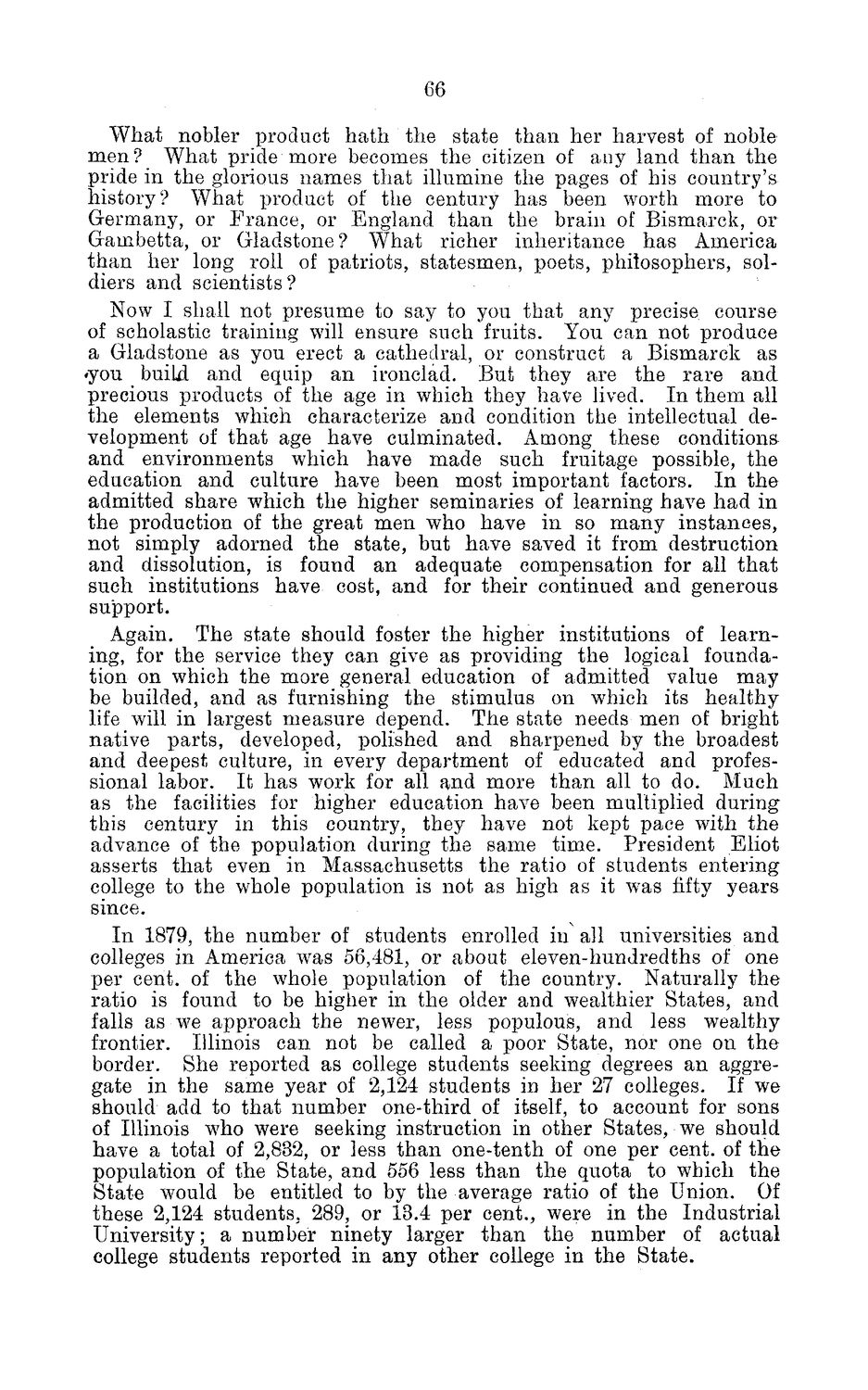| |
| |
Caption: Board of Trustees Minutes - 1884
This is a reduced-resolution page image for fast online browsing.

EXTRACTED TEXT FROM PAGE:
66 What nobler product hath the state than her harvest of noble men? What pride more becomes the citizen of any land than the pride in the glorious names that illumine the pages of his country's history? What product of the century has been worth more to Germany, or France, or England than the brain of Bismarck, or Ganibetta, or Gladstone? What richer inheritance has America than her long roll of patriots, statesmen, poets, philosophers, soldiers and scientists? Now I shall not presume to say to you that any precise course of scholastic training will ensure such fruits. You can not produce a Gladstone as you erect a cathedral, or construct a Bismarck as •you build and equip an ironclad. But they are the rare and precious products of the age in which they have lived. In them all the elements which characterize and condition the intellectual development of that age have culminated. Among these conditions and environments which have made such fruitage possible, the education and culture have been most important factors. In the admitted share which the higher seminaries of learning have had in the production of the great men who have in so many instances, not simply adorned the state, but have saved it from destruction and dissolution, is found an adequate compensation for all that such institutions have cost, and for their continued and generous support. Again. The state should foster the higher institutions of learning, for the service they can give as providing the logical foundation on which the more general education of admitted value may be builded, and as furnishing the stimulus on which its healthy life will in largest measure depend. The state needs men of bright native parts, developed, polished and sharpened by the broadest and deepest culture, in every department of educated and professional labor. It has work for all and more than all to do. Much as the facilities for higher education have been multiplied during this century in this country, they have not kept pace with the advance of the population during the same time. President Eliot asserts that even in Massachusetts the ratio of students entering college to the whole population is not as high as it was fifty years since. In 1879, the number of students enrolled in'all universities and colleges in America was 56,481, or about eleven-hundredths of one per cent, of the whole population of the country. Naturally the ratio is found to be higher in the older and wealthier States, and falls as we approach the newer, less populous, and less wealthy frontier. Illinois can not be called a poor State, nor one on the border. She reported as college students seeking degrees an aggregate in the same year of 2,124 students in her 27 colleges. If we should acid to that number one-third of itself, to account for sons of Illinois who were seeking instruction in other States, we should have a total of 2,832, or less than one-tenth of one per cent, of the population of the State, and 556 less than the quota to which the State would be entitled to by the average ratio of the Union. Of these 2,124 students. 289, or 13.4 per cent., were in the Industrial University; a number ninety larger than the number of actual college students reported in any other college in the State.
| |